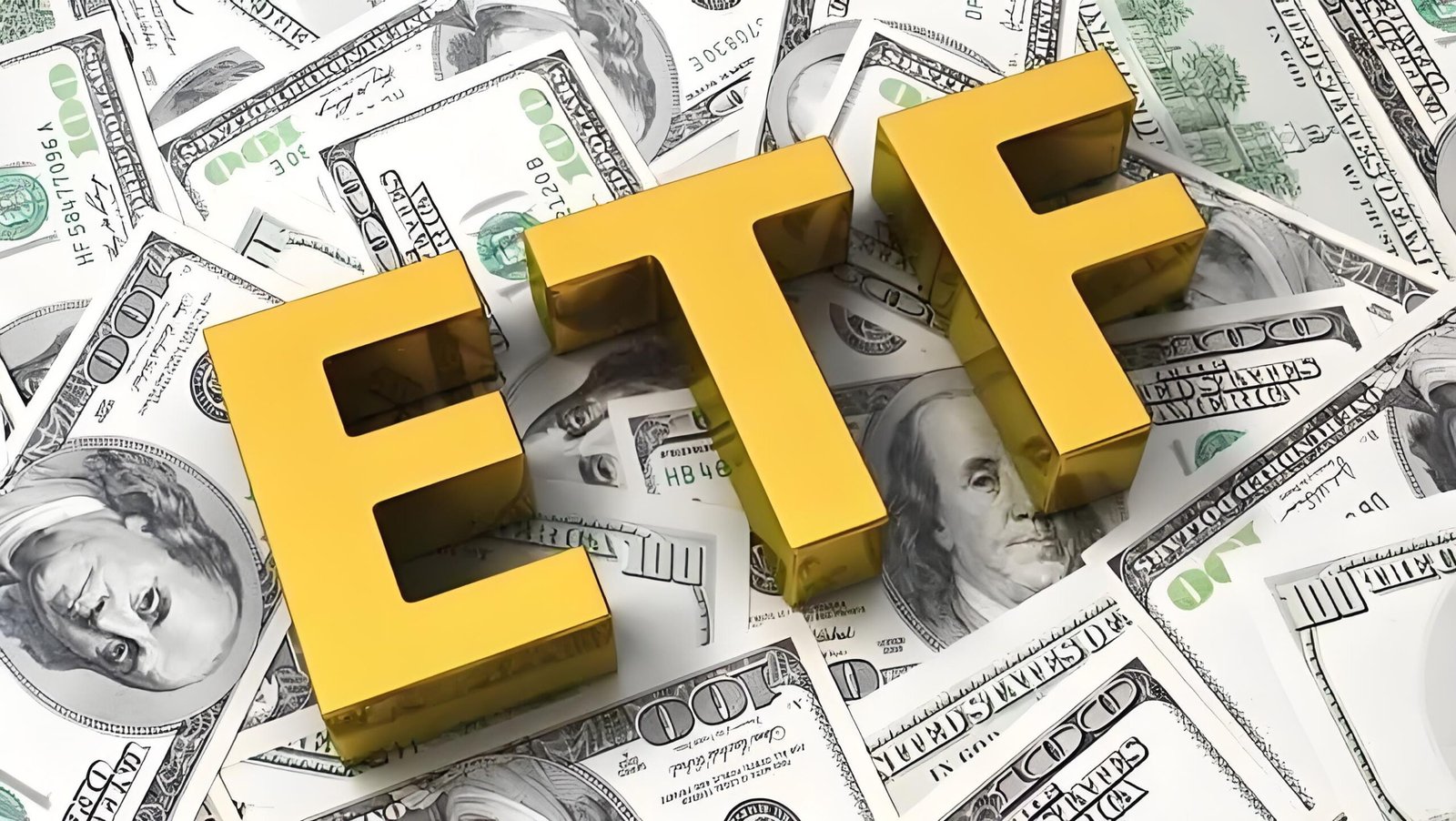The landscape of digital assets is experiencing unprecedented transformation as institutional altcoin adoption news continues to dominate market headlines throughout 2025. Major corporations, financial institutions, and government entities are increasingly integrating alternative cryptocurrencies into their strategic frameworks, marking a decisive shift from experimental interest to full-scale implementation. This institutional embrace of altcoins represents a fundamental change in how traditional finance perceives and utilizes blockchain technology beyond Bitcoin.
Recent institutional altcoin adoption news reveals that corporate treasuries have become significant catalysts for blockchain adoption. French real estate giant Entreparticuliers.com now holds Ethereum as its core reserve asset. At the same time, gaming firm Sharplink Gaming has integrated crypto into its balance sheets, demonstrating the broad sectoral appeal of Institutional Altcoin Adoption News. These developments indicate that altcoin adoption has evolved beyond speculative trading to become a legitimate treasury management strategy for forward-thinking organizations.
Current State of Institutional Altcoin Adoption News
Corporate Treasury Integration Trends
The integration of altcoins into corporate treasury strategies represents one of the most significant developments in Institutional Altcoin Adoption News. Companies across various sectors are recognizing that digital assets offer unique value propositions that traditional financial instruments cannot match. This shift reflects a growing understanding that blockchain technology provides operational efficiencies, global accessibility, and innovative financial solutions that align with modern business requirements.
Enterprise adoption patterns show remarkable diversity in altcoin selection criteria. While Bitcoin remains the primary institutional cryptocurrency choice, organizations are increasingly exploring alternative digital assets that offer specific utility functions, innovative contract capabilities, and ecosystem benefits. Ethereum continues to attract institutional attention due to its robust smart contract platform, while newer blockchain networks gain traction through specialized use cases and technological innovations.
The sophistication of institutional altcoin investment strategies has evolved significantly since the early adoption phases. Modern corporate cryptocurrency integration involves comprehensive risk management frameworks, regulatory compliance protocols, and strategic alignment with organizational objectives. These developments indicate that institutional altcoin adoption has matured into a professional asset class rather than an experimental investment category.
Financial Institution Participation
Traditional financial institutions are actively expanding their cryptocurrency service offerings to include comprehensive portfolios of altcoins. Major banks, investment firms, and asset management companies are developing specialized products that cater to institutional clients seeking diversified exposure to digital assets. This institutional infrastructure development creates sustainable demand for alternative cryptocurrencies while providing professional-grade security and compliance standards.
Investment management firms are launching specialized altcoin funds that target institutional investors seeking exposure to emerging blockchain technologies. These professionally managed investment vehicles provide institutions with curated access to promising altcoin projects, upholding fiduciary standards and ensuring regulatory compliance. The growth of Institutional Altcoin Adoption News investment products demonstrates the market’s evolution toward mainstream financial acceptance.
Custody solutions for institutional altcoin holdings have become increasingly sophisticated, addressing security concerns that previously hindered the large-scale adoption of these assets. Professional cryptocurrency custodians now offer comprehensive services that include multi-signature security, insurance coverage, and regulatory compliance support specifically designed for institutional altcoin portfolios.
ETF Development and Regulatory Progress

Altcoin ETF Filing Surge
There have been at least 31 spot altcoin ETF filings in 2025, representing unprecedented institutional demand for regulated altcoin investment products. This surge in exchange-traded fund applications suggests that traditional financial markets are preparing to accommodate institutional adoption of altcoins through familiar investment structures. The variety of altcoin ETF proposals demonstrates institutional recognition of diverse blockchain use cases and investment opportunities.
The regulatory environment surrounding altcoin ETFs continues to evolve favorably, with securities regulators showing increased willingness to consider applications for non-Bitcoin cryptocurrency investment products. ETFs containing Ripple’s payments-focused crypto, XRP, and the seminal memecoin Dogecoin (DOGE) appear most prominently among current filings, illustrating the broad institutional interest in various altcoin categories.
Professional investment advisors are preparing client portfolios for potential altcoin ETF approvals by developing allocation strategies that incorporate these new investment vehicles. The anticipation surrounding altcoin ETF launches reflects institutional confidence in the prospects of regulatory approval and the long-term market acceptance of alternative cryptocurrency investment products.
Government and Regulatory Support
Government entities worldwide are demonstrating increasing support for institutional altcoin adoption through favorable regulatory frameworks and direct investment initiatives. Holdings of the stock by government bodies reflect a desire to gain bitcoin exposure, where, in some cases, local regulators do not allow direct cryptocurrency investment, indicating creative approaches to institutional digital asset exposure.
Regulatory clarity improvements have significantly reduced institutional hesitation regarding altcoin investments. Clear legal frameworks for cryptocurrency custody, trading, and reporting enable institutions to develop comprehensive altcoin strategies without the uncertainty of regulatory oversight. These developments lay the foundation for sustainable long-term institutional adoption of altcoins.
International cooperation on cryptocurrency regulations has improved institutional confidence in cross-border altcoin transactions and investments. Harmonized regulatory approaches facilitate institutional altcoin adoption by reducing compliance complexity and enabling global digital asset strategies.
Technology Infrastructure and Enterprise Integration
Blockchain Platform Adoption
Enterprise blockchain adoption has accelerated significantly as organizations recognize the practical applications of various altcoin ecosystems. The Board of Governors voted to create a $408 million ecosystem development fund in January 2025, valued at 4.86 billion HBAR tokens, to support new projects, startups, and dApps, demonstrating substantial institutional commitment to specific blockchain platforms and their native tokens.
Decentralized finance (DeFi) protocols are attracting Institutional Altcoin Adoption News explore alternative financial services that operate independently of traditional banking systems. Institutional DeFi adoption represents a significant shift toward blockchain-based financial operations that utilize various altcoins for governance, utility, and investment purposes.
Innovative contract platforms continue to gain institutional traction as organizations implement automated business processes that require the use of native tokens. These implementations create sustainable demand for altcoins while demonstrating practical utility beyond speculative investment purposes.
Tokenization and Real-World Asset Integration
Tokenization, the process of placing the ownership of real-world assets on the blockchain, is expected to expand dramatically in 2025, creating new institutional use cases for various altcoins. This development represents a fundamental shift in how institutions conceptualize asset ownership and transfer mechanisms, facilitated by blockchain technology.
Real estate, commodities, and financial instruments are increasingly being tokenized using various blockchain platforms, creating institutional demand for the underlying altcoins that power these systems. Tokenization initiatives demonstrate practical applications for alternative cryptocurrencies beyond speculative trading purposes.
Enterprise asset tokenization projects require sophisticated blockchain infrastructure that often involves multiple altcoins for different operational functions. These complex implementations showcase the practical utility of diverse cryptocurrency ecosystems in institutional applications.
Market Analysis and Investment Trends
Performance Metrics and Institutional Adoption Correlation
The cryptocurrency market is poised for a significant altcoin bull run in 2025, driven by institutional adoption, AI integration, and emerging sectors like decentralized finance (DeFi) and tokenized real-world assets (RWAs). This correlation between institutional adoption and market performance demonstrates the significant impact of professional investment on the valuation of altcoins.
Institutional investment patterns show increasing sophistication in altcoin selection criteria, focusing on projects with demonstrated utility, strong development teams, and clear use cases. This shift toward fundamental analysis rather than speculative momentum indicates market maturation and sustainable growth potential for well-positioned altcoin projects.
Portfolio diversification strategies among Institutional Altcoin Adoption News include altcoin allocations as organizations recognize the unique value propositions offered by different blockchain ecosystems. This diversified approach to cryptocurrency investment creates sustained demand across multiple altcoin categories.
Also Read: Bitcoin’s Growth & Investment: How Institutional Confidence
Sector-Specific Adoption Patterns
The gaming and entertainment industries are leading the institutional adoption of altcoins through innovative implementations of blockchain technology in user engagement and monetization strategies. These sectors demonstrate how altcoins can create new business models and revenue streams for traditional enterprises.
Financial services companies are integrating altcoins into payment processing, remittance services, and cross-border transaction systems. Stablecoins are “becoming indispensable to the global financial system,” and networks such as Solana are ideal for stablecoin payments and remittances, highlighting specific institutional use cases for alternative cryptocurrencies.
Supply chain management and logistics companies are implementing blockchain solutions that utilize various cryptocurrencies, also known as altcoins, for tracking, verification, and payment purposes. These practical applications demonstrate how institutional altcoin adoption extends beyond financial investment to operational integration.
Future Outlook and Strategic Implications

Market Maturation and Mainstream Adoption
Crypto is expected to surpass the 10% adoption threshold in 2025, marking a transition from niche to mainstream and indicating that institutional altcoin adoption is approaching a critical mass for widespread acceptance. This milestone represents a fundamental shift in how organizations perceive and utilize digital assets in their strategic operations.
The evolution from experimental interest to systematic implementation suggests that institutional altcoin adoption will continue to accelerate as organizations recognize the competitive advantages offered by blockchain technology. Early adopters are likely to maintain strategic advantages as the technology becomes more widely adopted across various sectors.
Professional services industries are developing specialized expertise in blockchain implementation and altcoin integration to support Institutional Altcoin Adoption News. This infrastructure development lays the sustainable foundations for continued growth in institutional cryptocurrency adoption.
Innovation and Technology Development
The integration of artificial intelligence with blockchain technology is creating new institutional use cases for altcoins that combine automated decision-making with decentralized systems. These innovative applications demonstrate the expanding utility of alternative cryptocurrencies in advanced technological implementations.
Cross-chain interoperability solutions are enabling institutions to utilize multiple blockchain ecosystems simultaneously, creating complex altcoin strategies that leverage the unique advantages of different platforms. This technological sophistication indicates a mature institutional understanding of blockchain diversity and utility.
Central bank digital currency (CBDC) development is influencing institutional altcoin strategies as organizations prepare for hybrid digital asset environments that include both government and private cryptocurrencies. These preparations demonstrate institutional recognition of the evolving digital currency landscape.
Investment Strategies and Risk Management
Portfolio Construction and Asset Allocation
Institutional altcoin investment strategies have evolved to include sophisticated risk management frameworks that account for volatility, regulatory changes, and technological developments. Professional asset managers are developing specialized approaches to altcoin portfolio construction that balance growth potential with institutional risk tolerance requirements.
Diversification strategies within altcoin portfolios reflect institutional understanding of different blockchain use cases and market dynamics. Organizations are allocating investments across various cryptocurrency categories, including innovative contract platforms, payment systems, and specialized utility tokens, to create balanced exposure to blockchain innovation.
Due diligence processes for institutional altcoin investments have become increasingly rigorous, incorporating technical analysis, regulatory compliance assessment, and strategic alignment evaluation. These professional standards demonstrate the maturation of institutional cryptocurrency investment practices.
Risk Assessment and Mitigation
Institutional risk management frameworks for altcoin investments include a comprehensive assessment of technological risks, regulatory uncertainty, and market volatility. Professional risk management approaches enable institutions to participate in cryptocurrency markets while upholding their fiduciary responsibilities and maintaining operational stability.
Insurance products designed explicitly for institutional altcoin holdings are becoming increasingly available, addressing security and custody concerns that previously limited large-scale adoption. These risk mitigation tools provide additional confidence for institutional investors considering significant allocations to altcoins.
Regulatory compliance strategies for institutional altcoin adoption include ongoing monitoring of legal developments, proactive engagement with regulators, and implementation of robust reporting systems. These comprehensive approaches ensure that institutional cryptocurrency activities remain compliant with evolving regulatory requirements.
Conclusion
The landscape of institutional altcoin adoption news continues to evolve rapidly as organizations across various sectors recognize the strategic value of alternative cryptocurrencies. The convergence of regulatory clarity, technological maturation, and proven utility cases has created an environment where institutional altcoin adoption represents a competitive advantage rather than an experimental risk.
Organizations considering altcoin integration should develop comprehensive strategies that include thorough due diligence, professional risk management, and clear operational objectives. The current market environment provides unprecedented opportunities for institutions to establish positions in emerging blockchain technologies while benefiting from improved infrastructure and regulatory support.
As Institutional Altcoin Adoption News demonstrates throughout 2025, the transformation from niche interest to mainstream acceptance is accelerating. Organizations that develop thoughtful approaches to cryptocurrency integration will be well-positioned to capitalize on the continued evolution of digital asset markets and blockchain technology applications.

